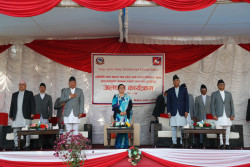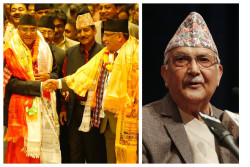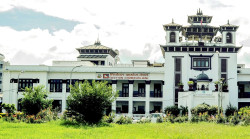Elections 2022
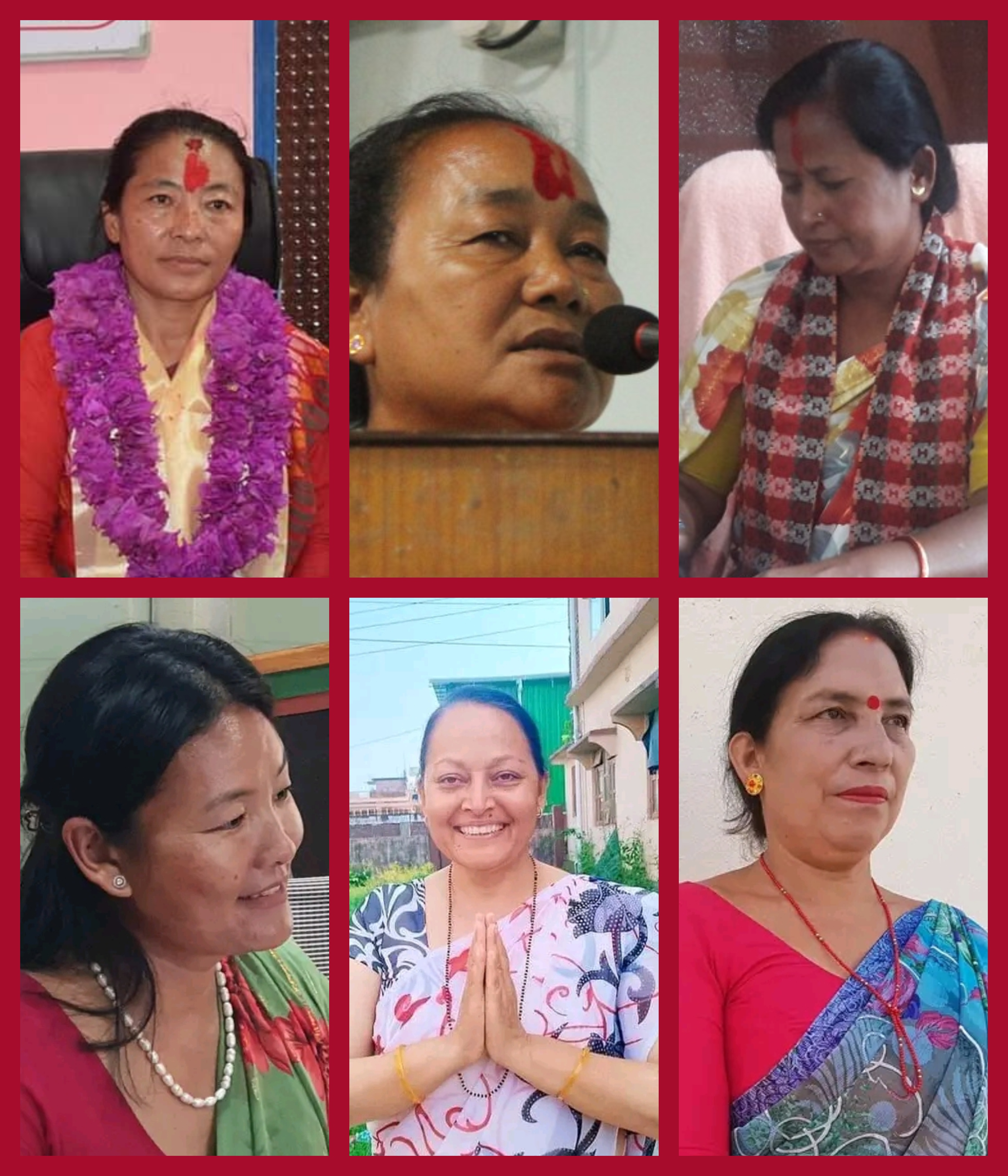
Male bastions have fallen at many places in eastern Nepal.
Post local elections held on May 13, 2022, six municipalities of Province-1 in eastern Nepal have elected female chiefs, who battled their way to the top municipal job alongside 131 male counterparts who were in the electoral battle.
This is a giant leap for women in Province-1, where only one -- yes just one -- woman had won a top municipal seat in the previous local elections held in 2017.
Rajmati Ingnam, Chairperson of Kanepokhari Rural Municipality, Morang: “Those who discouraged me earlier are now seeking benefits.”
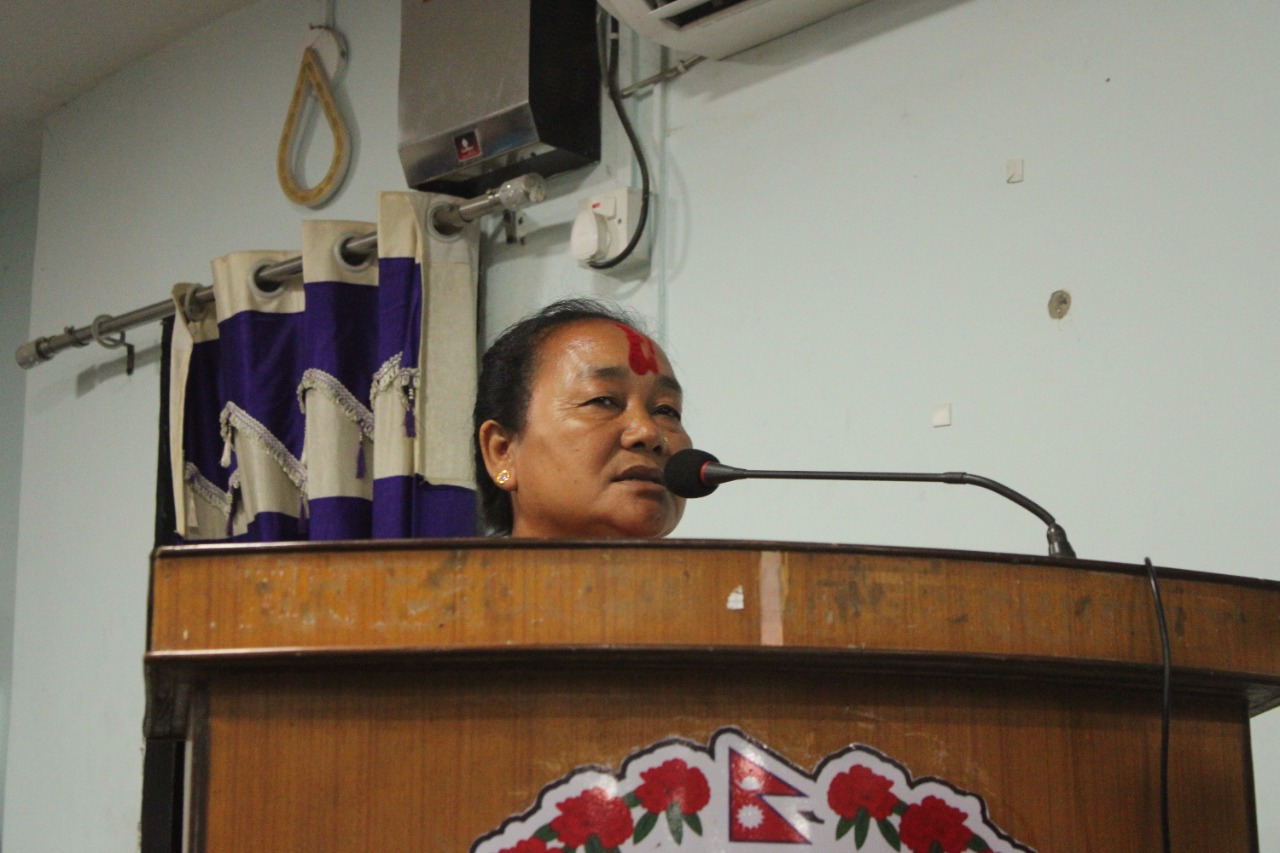
In the top local leadership in the province, fairer faces are still few despite the nominal rise in their number.
For example, Rajmati Ingnam, chair of Kanepokhari Rural Municipality of Morang, was the only woman among 17 municipal chiefs taking oath of office at Biratnagar Metropolitan Council from the Chief District Judge of Morang.
When a proud Ingnam rose to speak, after oath, the hall heard an uproar greeting her and wishing for her successful tenure.
Ingnam said she felt good for being elected in a male-dominated society but also expressed concern that males far outnumbered females in the top job.
This is not the first time Ingnam is representing the people. In the previous local elections, people sent her to work as deputy-chairwoman of the same rural municipality.
A member of the central department of Nepal Communist Party (Unified Marxist – Leninist), she was a heavyweight as a candidate with a political legacy.
Yet Ingnam said it was hard for her in the beginning to get the ticket and run for the leadership post. Now that she won, she said, those who had discouraged her all along were all around her, seeking benefits.
“I am determined as before not to let anyone question my integrity,” Ingnam told NepalMintue in an interview.
When asked how she would take care of her municipality and home, as a single woman caretaker of family, Ingnam said, “All you need to do is management (managing your time) and having a family which understands the nitty-gritty of being a politician, which is always a blessing.”
Bimala Rai, Mayor of Halesi Tuwachung Municipality, Khotang: “I have a responsibility towards the women who helped elect me, more than ever.”
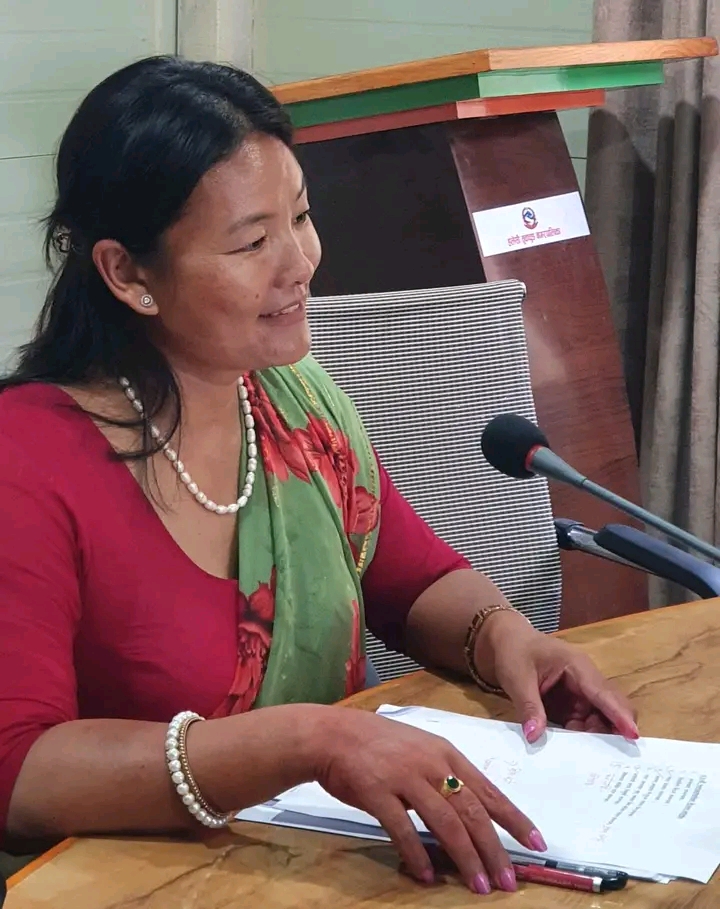
Bimala Rai, former deputy mayor of Halesi Tuwachung Municipality, Khotang now sits on the mayoral chair but her journey from the second to the first public position was not easy for her.
A member of Nepali Congress Province -1 Committee, Rai was ridiculed when she floated the idea of running for the mayoral post. She proposed her candidacy for the post at the party’s provincial committee but her colleagues said she would not make a strong candidate.
She approached the provincial parliamentary board within the Nepali Congress that distributes the tickets for rural municipality and municipality candidates. The Congress helped Rai, but other parties in its coalition helped Rai's opponents, denting her chance to win the mayoral post. Yet Rai won anyway.
Rai said she believed it was women across the party line who organized ama samuha, a group of married women who engage in social work in rural Nepal, and helped its members to register an agriculture co-operative.
Speaking to NepalMinute, Rai attributed her success to the women of her municipality: “So I have a responsibility to these women, who helped elect me, more than ever.”
Rai's father a former chief of local panchayat, or Pradhan Pancha, of the erstwhile political regime made it possible for Rai in her initial political days to participate in the day-to-day politics.
She said her family understood her, her father made it easy for her to take part in politics, and that support made her run for the mayoral post.
Aruna Devi Rai, Chairperson of Jante-Dhunga Rural Municipality, Khotang: “I am also ready to fight for our rights if due priority is not given to us.”
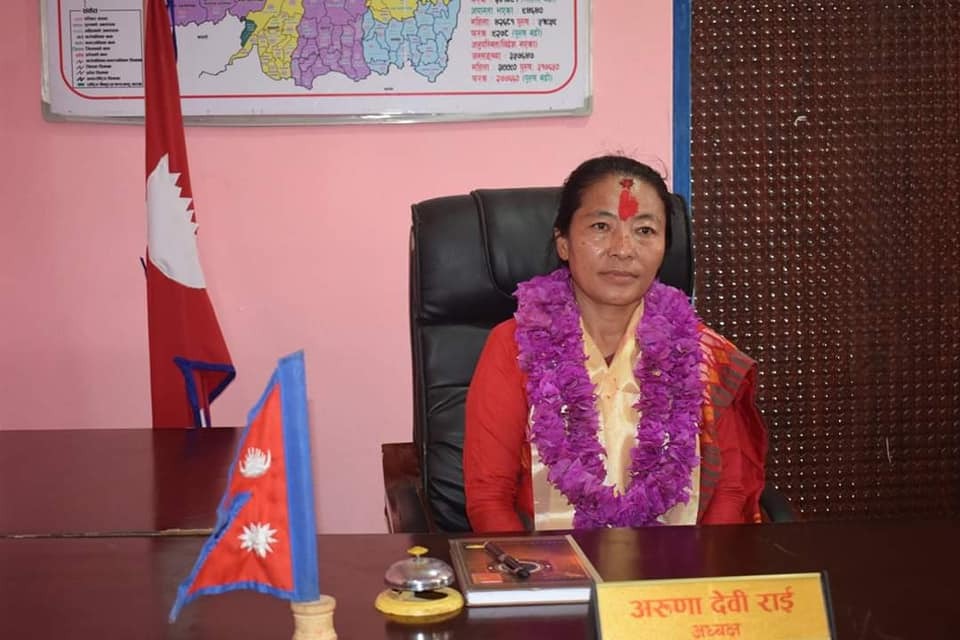
Aruna Devi Rai, the only rural municipality chair-woman for Nepal Communist Party (Maoist Centre) in Province 1, now leads Jante-Dhunga Rural Municipality, Khotang.
Rai faced an initial backlash when she expressed her desire to run for the post of chair of her municipality. As the nomination day approached, she got what was due to her in her long political career.
By not just contesting but winning the election, Rai said, she had proved what women were capable if they were given an equal chance to contest elections.
“I am all set to co-operate with provincial and central level governments for the benefit of the people of my constituency and I am also ready to fight for our rights if due priority is not given to us,” she told NepalMinute.
Mina Devi Karki, Likhu Pike Rural Municipality, Solukhumbu: “If I fail to discharge my duty in an efficient way, it would be very hard for other women to re-run for the same post.”
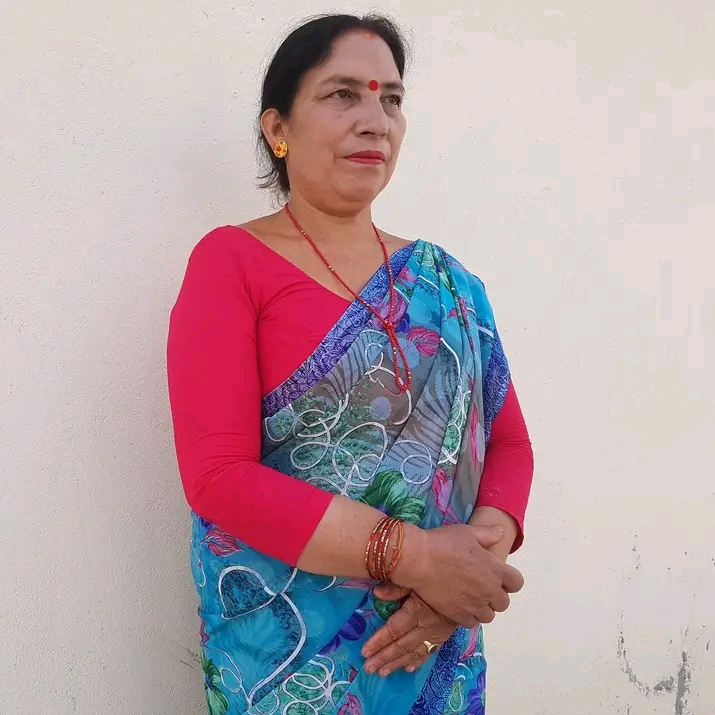
Mina Devi Karki, a former teacher of Solukhumbu district, was all set to assume the role of deputy-chair of Likhu Pike Rural Municipality, Solukhumbu, but she fell short of votes in the previous local elections.
After her defeat, Karki turned more active in politics and convinced her party, Nepali Congress, about her win this time. Once she secured the ticket for the top job of the rural municipality, she left no room for defeat.
Karki said the road to the top local post was thorny but then she was very determined to pick the thorns one after another. After party fielded her, Karki used her image and legacy as a teacher in her campaign and won the election for herself and the party.
As the chair of Likhu Pike Rural Municipality, Karki told NepalMinute that her concern now was to divide her time for work between her municipality and her family: “If I fail to discharge my duty in an efficient way, it would be very hard for other women to re-run for the same post and I am more than concerned about this.”
Phulwati Rajbanshi, Chairperson of Gauriganj Rural Municipality, Jhapa: “Our parties still try to restrict women to the deputy job; this is unfortunate.”
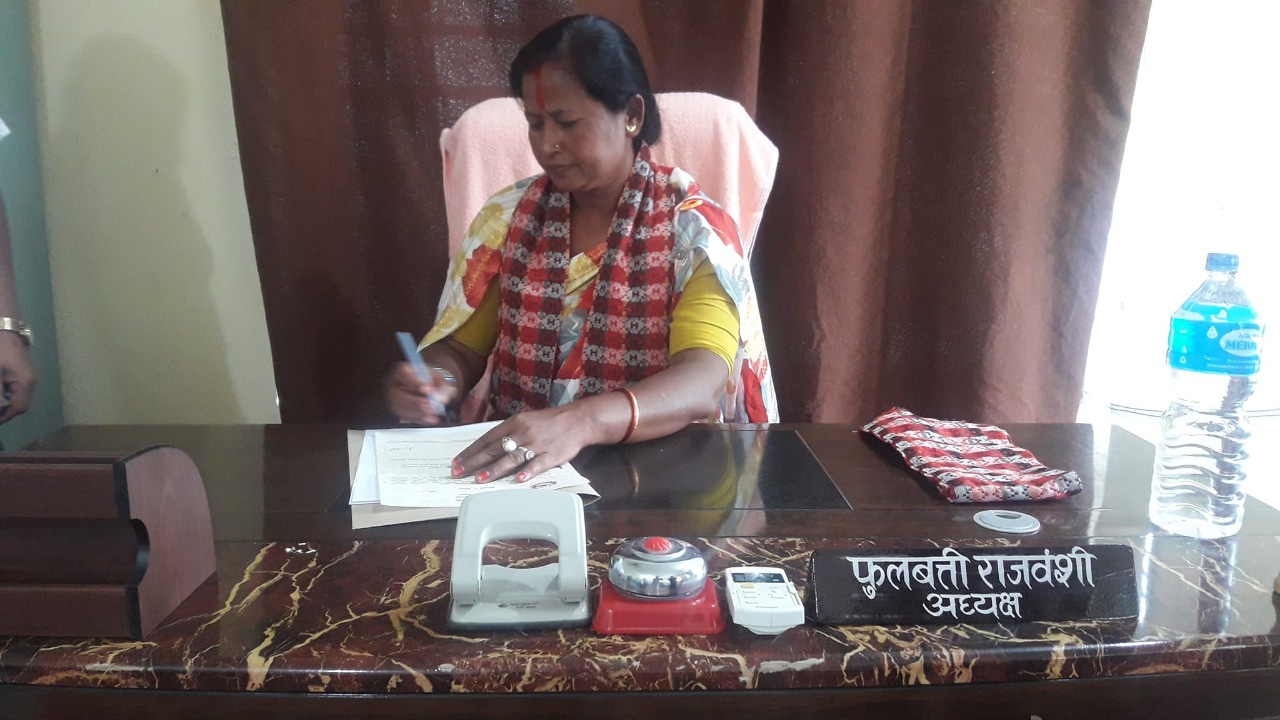
Phulwati Rajbanshi, chair of Gauriganj Rural Municipality of Jhapa, belongs to a rare breed of women leaders whose deputy-chair, coincidentally, is also a woman.
Pujan Kunwar Neupane is her deputy. Rajbanshi is from Nepali Congress whereas Neupane is from Nepal Communist Party (Unified Marxist-Leninist).
After winning her very first contest as the chair of the rural municipality, Rajbanshi said she believed the most difficult part of the election process was to fight for the ticket within the party.
Speaking to NepalMinute after her victory, she lamented that it was still difficult for the parties to stomach the fact that women can fight all the way to the top: “Parties still try to restrict women to the deputy job; this is unfortunate.”
Rajbanshi said it was comforting for her that her deputy is also a woman. “This makes ours a rare municipality of the country, with both chair and deputy as women,” she said. “So I am aware of the opportunity and hindrance this can bring to women’s political movement if we fail.”
Rajbanshi said of her deputy from a different party, “We will work together for the well being of people of our constituency.”
Pabitra Mahatara, Mayor of Birtamod Municipality, Jhapa: “Oh my mum, don’t even talk about my struggle (ammama, kurai nagarnus)!”
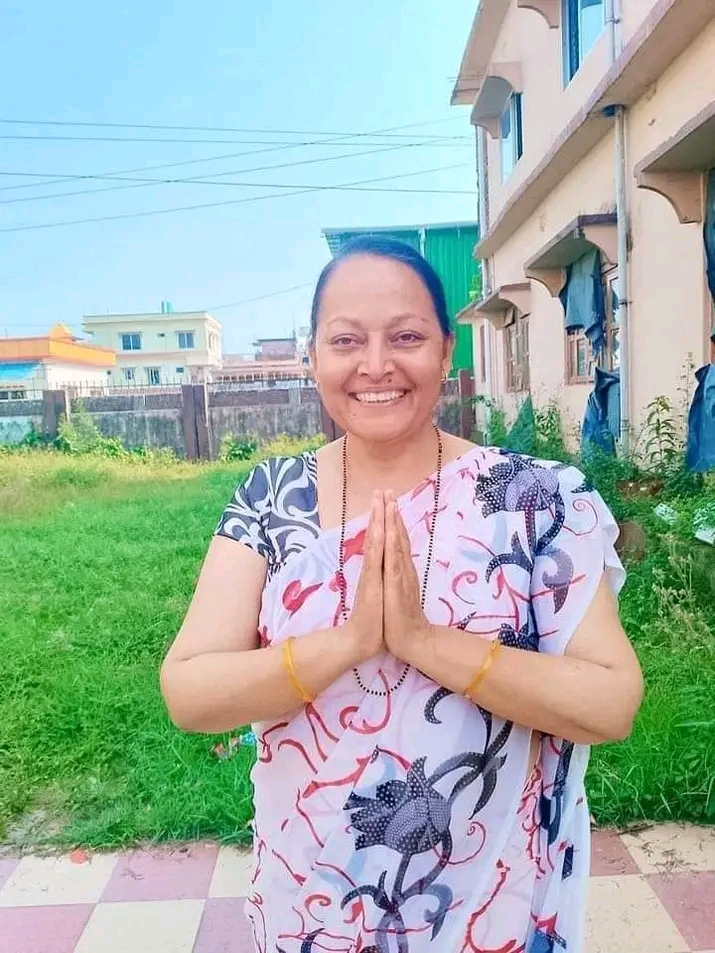
Pabitra Mahatara, one of the two women mayors elected in Province 1 so far, now heads Birtamod Municipality, Jhapa. A former deputy mayor of Birtamod, a determined Mahatara made it to the mayoral post this time.
When asked how hard it was for her to contest the election, she used a refrain, with a relief, “Oh my mum, don’t even talk about it (ammama, kurai nagarnus)!”
As a single mother, Mahatara was going deeper into politics even though the road appeared much more difficult. Her confidence rose from her previous stint as the deputy mayor. She said she was now more confident than before to discharge her duty as the mayor.
Mahatara told NepalMinute that she believed her role as the mayor would influence other women to run for the top local post across the political spectrum: “My failure as a mayor will give people a chance to discourage women from running for the chief post.”
That means that she clearly knows what she’s doing and what she will be doing in her five-year tenure which has just started.
